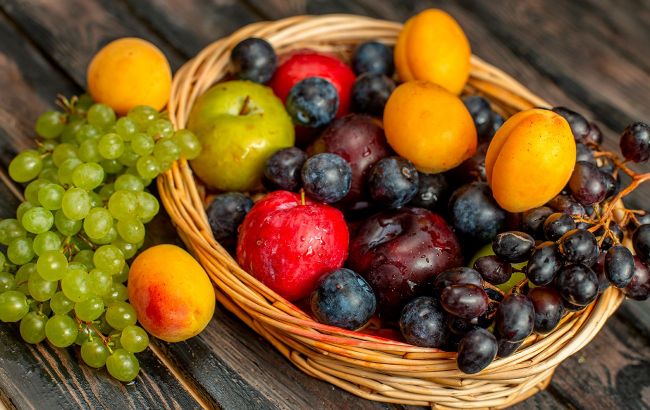Fruit that burns fat better than gym
 Illustrative photo (Freepik)
Illustrative photo (Freepik)
Fiber and water in fruits contribute to a feeling of fullness and reduce calorie intake. Nutritionists recommend eating fruit for weight loss and advise against believing those who claim that fruit leads to weight gain.
Why is it important to eat fruits?
Despite containing carbohydrates and natural sugars, research consistently shows that fruits can support maintaining a healthy weight. First, the fiber and water in fruits can extend the feeling of fullness, meaning you may feel full longer after consuming fruits.
If this helps you eat less and reduce your calorie intake, it can contribute to weight loss. Fruits are also low in calories, and if you eat them instead of a high-calorie snack, this can help create a calorie deficit, aiding in weight loss.
Other factors can also play a role. For example, the fiber and antioxidants in fruits can alter your gut microbiome in ways that protect against weight gain, and certain nutrients in fruits may guard against obesity.
What is number one fruit for weight loss?
Apples take the top spot as the number one fruit for weight loss for several reasons. A large apple contains 5 grams of fiber, a mix of soluble and insoluble types. Both are important for health, but soluble fiber helps regulate appetite by slowing stomach emptying, keeping you feeling full longer.
This can help you eat less and, consequently, lose weight.
Due to their firmness, apples require more chewing than some other fruits, and studies have shown that prolonged chewing increases the feeling of fullness.

Photo: Freepik
Apples also draw water into the large intestine, which has been shown to reduce appetite and the desire to eat later in the day.
Furthermore, a 2015 study found that people who eat apples are 30% less likely to suffer from obesity than those who skip apples.
Best fruits for weight loss
Blueberries
Among a class of antioxidants known as flavanols, anthocyanins, commonly found in blueberries, have been linked to the least weight gain over time. Additionally, among twins (who share the same genetic structure), those who ate more blueberries were thinner than those who ate fewer.
Watermelon
According to one study, watermelon may help with fullness and weight loss. Compared to a cookie snack, those who ate watermelon daily reported feeling less hungry, fuller, and had fewer cravings throughout the day, while also losing significantly more weight than those who ate cookies, despite both snacks containing the same number of calories.
Avocado
Though rich in fat, avocados are technically a fruit, and while it may seem counterintuitive that a high-fat food could aid in weight loss, there is evidence that people who eat avocados gain less weight over time.
A 2013 study found that adding half an avocado to lunch increased satiety and reduced the desire to eat by 28% over the following five hours compared to a meal without avocado, suggesting that avocado may help you eat less and lose weight.
Kiwi
It has been proven that eating two kiwis before bedtime improves sleep quality, reduces the time it takes to fall asleep, and increases sleep duration by 13%. That's more than 45 additional minutes if you're already sleeping six hours a night! These extra hours of sleep can make it easier to lose weight. Another study showed that consuming two kiwis per day resulted in a significant reduction in body fat among overweight and obese young people.

Photo: Freepik
Grapefruit
A 2006 study found that eating half a grapefruit before a meal led to significant weight loss. Another study showed that consuming grapefruit was associated with reductions in body weight, BMI, and waist circumference.
Can eating too much fruit cause weight gain?
Most people eat too little fruit, so eating too much fruit isn’t a concern. Additionally, no single food can cause weight gain. Overall diet quality and meeting your body's needs is what matters. Exceeding your body's calorie needs causes weight gain, but many factors, including genetics and food availability, influence body weight.

